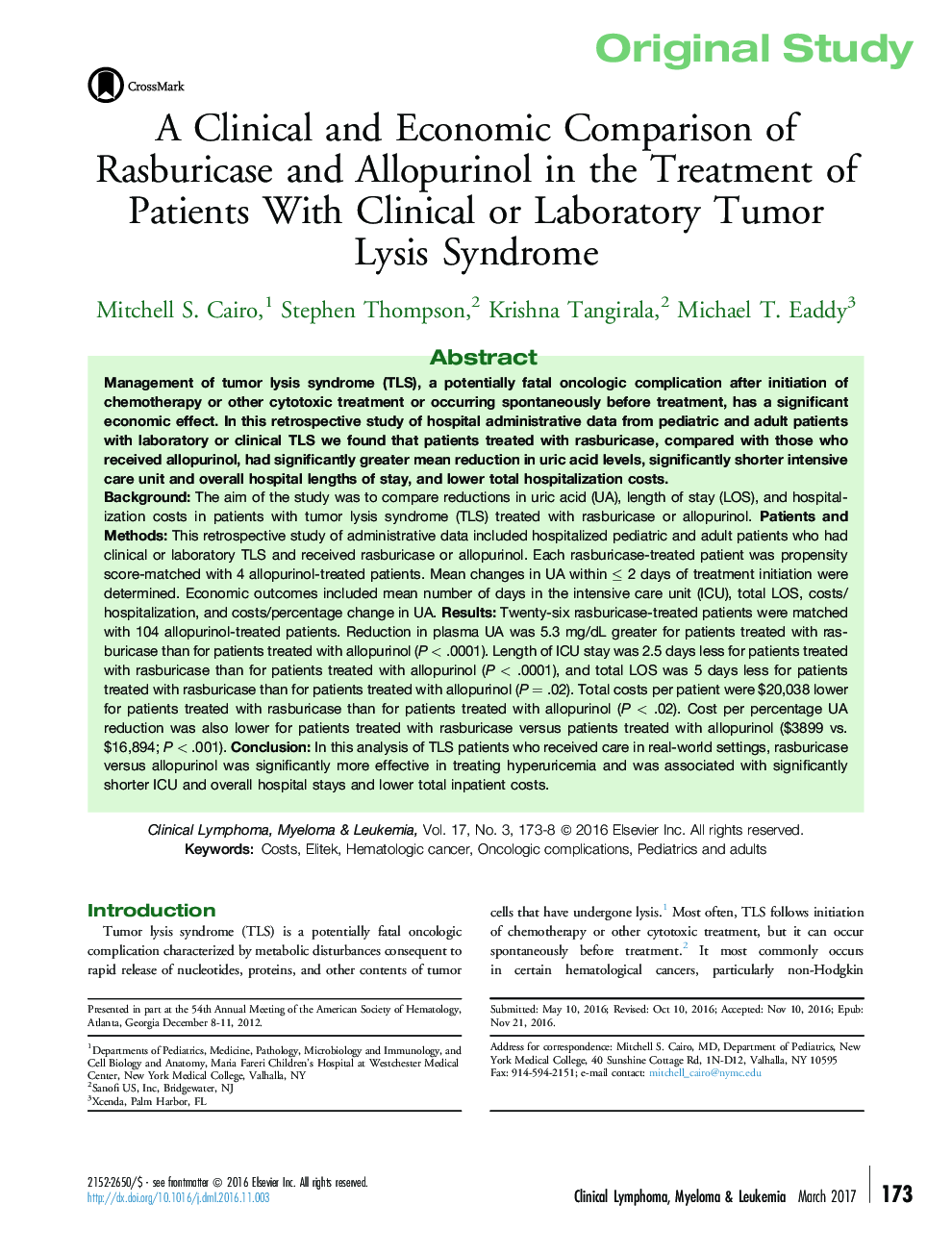| Article ID | Journal | Published Year | Pages | File Type |
|---|---|---|---|---|
| 5581901 | Clinical Lymphoma Myeloma and Leukemia | 2017 | 6 Pages |
BackgroundThe aim of the study was to compare reductions in uric acid (UA), length of stay (LOS), and hospitalization costs in patients with tumor lysis syndrome (TLS) treated with rasburicase or allopurinol.Patients and MethodsThis retrospective study of administrative data included hospitalized pediatric and adult patients who had clinical or laboratory TLS and received rasburicase or allopurinol. Each rasburicase-treated patient was propensity score-matched with 4 allopurinol-treated patients. Mean changes in UA within ⤠2 days of treatment initiation were determined. Economic outcomes included mean number of days in the intensive care unit (ICU), total LOS, costs/hospitalization, and costs/percentage change in UA.ResultsTwenty-six rasburicase-treated patients were matched with 104 allopurinol-treated patients. Reduction in plasma UA was 5.3 mg/dL greater for patients treated with rasburicase than for patients treated with allopurinol (P < .0001). Length of ICU stay was 2.5 days less for patients treated with rasburicase than for patients treated with allopurinol (P < .0001), and total LOS was 5 days less for patients treated with rasburicase than for patients treated with allopurinol (P = .02). Total costs per patient were $20,038 lower for patients treated with rasburicase than for patients treated with allopurinol (P < .02). Cost per percentage UA reduction was also lower for patients treated with rasburicase versus patients treated with allopurinol ($3899 vs. $16,894; P < .001).ConclusionIn this analysis of TLS patients who received care in real-world settings, rasburicase versus allopurinol was significantly more effective in treating hyperuricemia and was associated with significantly shorter ICU and overall hospital stays and lower total inpatient costs.
